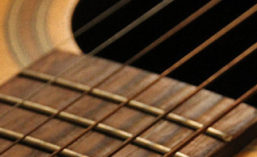Did you find us via Facebook or Twitter? Are you following a link from an email or blog post? Welcome!
We love music and know that it can be a wonderful addition to healthcare and educational settings, not to mention our daily lives. Simply listening to a favorite piece of music can be soothing or energizing. Most of us use music; we choose music to accompany exercise, music to help pass the time on a long drive, music to help us relax, and music for celebration.
Any facility or agency that offers music to its patients, clients, students, etc. is trying to do a good thing, and it should probably keep doing it! So why do we worry about misleading headlines and news stories? Why is it important to distinguish music therapy from, say, iPods for seniors (Music and Memory), music practitioners playing at patients’ bedsides, or the wonderful volunteers who lead sing-a-longs, help veterans write songs, or provide music at camps for children with special needs? Why provide music therapy via a board-certified music therapist (MT-BC)?
It’s important because sometimes a more specialized and individualized intervention can have a more significant and lasting impact. A music therapist’s ability to play live music in a particular genre — and to alter that music, moment to moment — may make the difference between a temporary pleasant experience and an opportunity for growth and change. A music therapist’s knowledge of the neurological processing of music and music’s impact on functioning can lead (as part of a treatment team) to recovery of communication, physical, cognitive, and social skills.
It’s important because of accountability. Board-certified music therapists (who are also, in some states, licensed) have a Scope of Practice, a Code of Ethics, and a requirement for continuing education. They document their work, maintain confidentiality, and know how to work as a part of a treatment team.
So if you are a writer, a reporter, a healthcare worker, an administrator — or just someone who believes in the “power of music” — we invite you to celebrate the variety of ways in which music can be used for good (“recreational music,” “therapeutic music,” “music listening”) but also to learn about and highlight “music therapy” — where it is already practiced and where it might be added. For more information, browse this site and visit the American Music Therapy Association.
